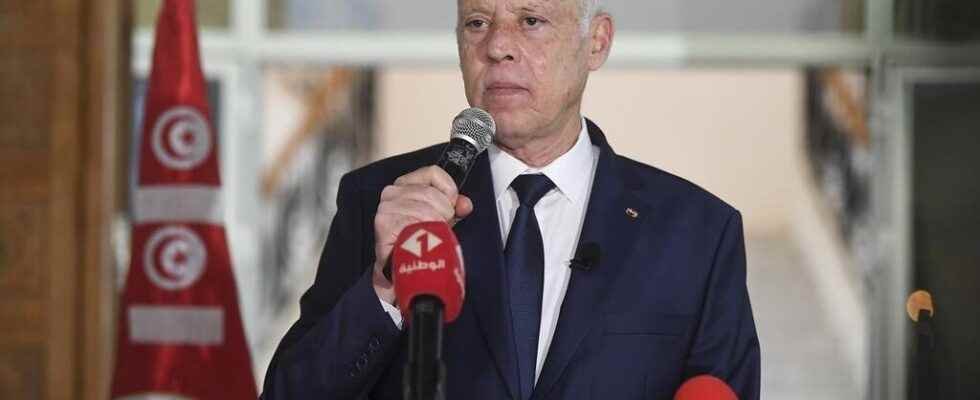A little over nine million voters are called to the polls this Monday, July 25, in Tunisia, for a referendum on the new Constitution, a project supported by Tunisian President Kaïs Saïed. The vote takes place a year after the suspension of Parliament, which was then dissolved at the end of March by Kaïs Saïed. Voices have been raised to denounce this project, but the president retains solid popularity.
With our special correspondent in Tunis, Magali Lagrange
” Do you approve of the draft of the new Constitution of the Tunisian Republic? It is to this question, written in Arabic and French, that Tunisian voters are called upon to answer, by ticking the green box for yes, or red for no.
This project, led by President Kaïs Saïed, a 64-year-old retired professor of constitutional law, marks a break with the parliamentary system in place since 2014, following the revolution.
The new constitution grants broad powers to the president. The latter appoints the head of government and the ministers, he can dismiss them unilaterally. The Head of State also appoints magistrates, on the proposal of the Superior Council of the Judiciary.
The text has drawn the wrath of the opposition and part of civil society. But the Head of State, elected in 2019, still has of solid popularityand some Tunisians are disappointed with political parties.
Participation, a not so decisive unknown
How many voters will travel today to slip their ballot into the ballot box? This is one of the main questions that arise. The offices will remain open between 6 a.m. and 10 p.m. local time. Extended hours compared to previous polls, on this public holiday which marks the feast of the Tunisian Republic. ” It’s about giving voters more options “, explains Anis Ben Elmoudi. The president of the regional electoral authority of Ariana points out that it is summer, that the Tunisians go to the beach or to ceremonies and that the temperatures are high, during part of the day.
Popularity of Kaïs Saïed, rejection of political parties, some of which are calling for a boycott… For many analysts, the outcome of the election is not in doubt. It remains to be seen whether voters will feel concerned by this vote, or whether their concerns lie elsewhere, while the Tunisian economy is doing poorly and unemployment is high.
No minimum threshold is required to validate the vote. The majority answer will prevail, regardless of the participation rate recorded.
After the referendum, early legislative elections are scheduled for December 17.
■ On the eve of the vote, the Independent High Authority for the Elections completes the preparations and transports the material to the voting centers. Report in Ariana, a city in the suburbs of Tunis
It’s true that we usually have a lot more time to organize events like this. But we weren’t shaken, because we have the experience of organizing elections within a short period of time. We did it for the previous presidential elections
Sealed ballot boxes are loaded onto army trucks and must be transported to Ariana’s 470 polling stations
